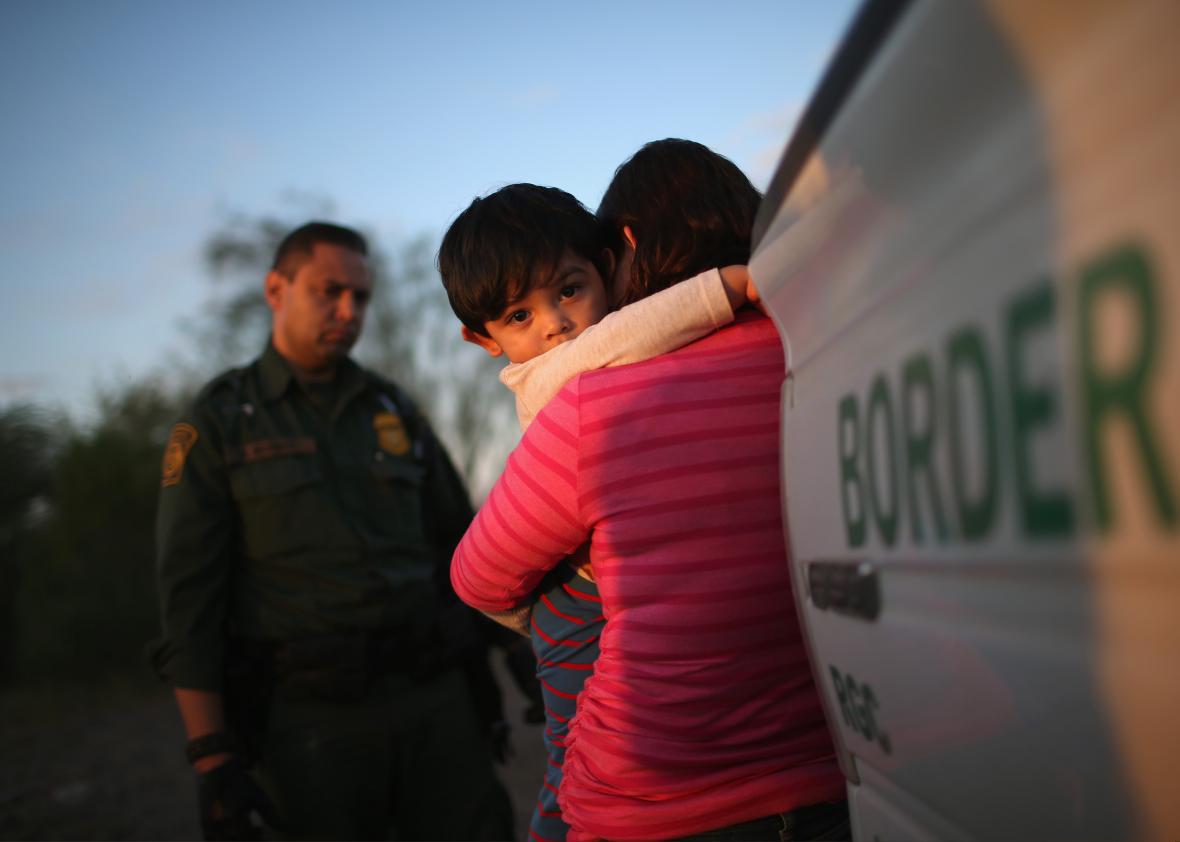On Monday, an AP investigation revealed that U.S. officials in charge of housing and resettling Central American refugee children ignored child protection policies, allowing dozens of kids to be placed in homes where they were allegedly neglected, sexually assaulted, and starved.
According to the AP, the Department of Health and Human Services, which handles and places unaccompanied children who are caught trying to cross the U.S.-Mexico border illegally, has been lowering its safety standards in order to move more children out of overwhelmed temporary housing shelters and into sponsors’ homes. Starting in early 2014, HHS stopped fingerprinting people seeking to claim children, stopped verifying their identities, and stopped doing criminal background checks.
Tens of thousands of Central American refugees fleeing poverty, a historic drought, and gang and drug-related violence in Honduras, Guatemala, and El Salvador have entered the U.S. illegally since 2014. The AP identified two dozen children who had been victims of sexual abuse and neglect after being released to sponsors’ homes. (The AP implies but does not state explicitly that background checks and identify verification would have prevented these placements.) But Jacqueline Bhabha, research director at the FXB Center for Health and Human Rights at Harvard University, told the AP that this is “clearly the tip of the iceberg,” since social workers now cannot find many of the sponsors who have taken in the more than 89,000 children that have entered the country since October 2013.
In Ohio, for example, six children were forced to work 12-hour days under death threats at an egg farm as part of a trafficking ring, according to the AP’s investigation. In Florida, more than a dozen children were sent to an apartment complex that is now empty, and the children are nowhere to be found. Anti-trafficking advocates told the AP that they are concerned places like this are being used as fronts for sex- or labor-trafficking rings.
Other harrowing tales in the AP report include a 14-year-old girl from Honduras forced by her stepfather to work at Florida cantinas where women are expected to have sex with clients, and a 14-year-old Guatemalan boy whose distant relative locked him in his apartment, demanded rent payments, and starved him.
This is not the first time this issue has come up. In November, a whistleblower told Iowa Sen. Chuck Grassley that 3,400 sponsors listed in a government database had homicide, child molestation, sexual assault, and human-trafficking histories. That whistleblower had reported this to his supervisors, according to Grassley’s office, but nothing was done to investigate.
HHS told the AP that they are opening new shelters and are reviewing these claims.
